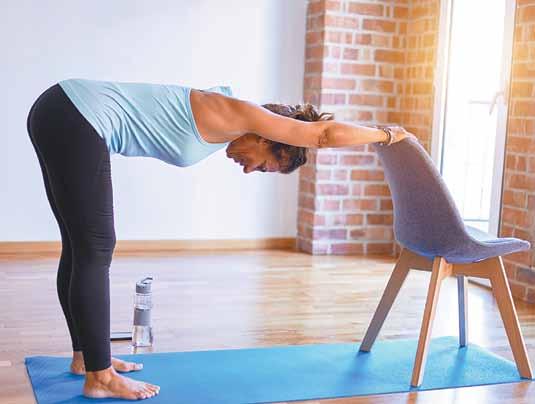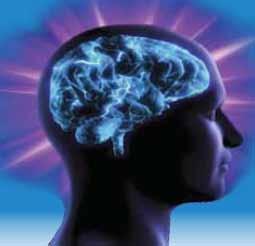
2 minute read
NoRtH tEXaS paiN
able-bodied people. I gained a newfound love for my body and a love for myself.”
Eisenberg affirms, “It’s exciting to realize that our bodies are so much more capable than we thought, and we learn that we are not defined by our individual disease or limitations. As my teacher Jon Kabat-Zinn says, ‘As long as you are breathing, there is more right with you than wrong.’”
Advertisement
Marlaina Donato is an author and composer. Connect at AutumnEmbersMusic.com.
Online Yoga Resources
Free adaptive yoga classes online from Miranda McCarthy. AdaptiveYogaLive.com
YogaJP, YouTube chair yoga classes for people in wheelchairs. Tinyurl.com/WheelchairYogaClasses
Yoga and MS, book from the National Multiple Sclerosis Society. omsyoga.org
viacheslaviakobchuk/AdobeStock.com Adaptive Yoga Benefits
from Miranda McCarthy
n Increased strength, balance and flexibility—both mental and physical n Discovery of a subtle level of mind-body sensation not impeded by disability n Improvements in the quality of breathing n A sense of lightness and freedom within the body n An increased ability to manage stress n A deepened sense of wholeness and connection with others North TX Pain Management Doc Exhorts Adaptive Yoga
Adaptive yoga connects the mind, body, and spirit through the practice of physical postures (asana), partnered with the breath (pranayama) and meditation practices. In a well-balanced exercise regimen, movement is linked with breath and focused intention. Yoga is the first known form of structured exercise, where breath and movement were paired together almost 6,000 years ago. While the science or understanding underlying the rationale for breath and movement has changed from the ancient origin, the practical application remains the same.
Adaptive yoga is a practice that is available to anyone, including those with physical impairments secondary to disease or injury, such as multiple sclerosis and those in wheelchairs due to spinal cord injuries.
Physical therapy has been the mainstay of rehabilitation efforts for the past 75 years and will always have a place in helping those that have physical limitations to begin the climb back to becoming more functionally independent. Once physical therapy has plateaued or finished, these individuals are often left to figure out the next steps on their own, which can be a challenge.
The practice of adaptive yoga allows for tailoring of the asanas to accommodate those with functional limitations using blankets, chairs, bolsters and other assistive devices. These modifications allow for tailoring of the asanas to fit the body, as opposed to forcing the body to fit a specific shape.
There are carryover benefits of pranayama training, including stimulation of the parasympathetic nervous system—the part that brings calm and relaxation—and can be helpful for those with anxiety or depression by helping divert attention to breath. Adaptive yoga can be done in groups or individual sessions, and is truly intended for everyone.


Fr. John East, DO. board-certified in pain medicine and in physical medicine and rehabilitation, is the owner of Addison Pain & Regenerative Medicine.








